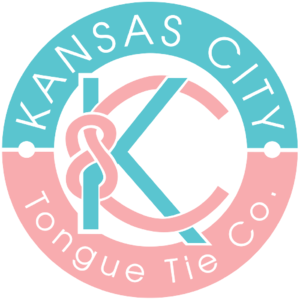Tongue tie, also known as “ankyloglossia” is a condition present at birth that restricts the tongue’s range of motion. A lingual frenum is a band of tissue extending from the floor of the mouth to the underside of the tongue. A tongue tie is when the frenum is tight enough to restrict movement of the tongue.
FREQUENTLY ASKED QUESTIONS
Tongue ties vary in appearance. Anterior tongue ties are evident as a band of tissue on the underside of the tongue to the floor of the mouth.
Posterior tongue ties might not be visible to the naked eye until the tongue is positioned posteriorly during a proper exam.
It is not the look of the tie that indicates need for a revision but rather the function and symptoms that the attached tissue is causing.
Tongue tie is common but not always diagnosed. Not all tongue ties require intervention. Due to the complexity of defining a tongue tie, research shows a range of 0.1%-10% prevalence.
A normal frenum should not interfere with lip and tongue movements. If a frenum is tight and interfering with basic functions of life like eating, sleeping, and talking, releasing these tethered oral tissues should be considered to increase quality of life.
With no local anesthetic, the procedure would be uncomfortable and cause some pain. The comfort of our patients is extremely important to us. We provide topical anesthetic to numb the tissue prior to the procedure. In older children/adults, local anesthetic may or may not be used depending on the size of the tissue being released, the patient’s cooperation level and the patient’s preferences.
The procedure is quick, less than a minute, so topical anesthetic generally suffices for pain management.
Over the counter pain medications can be used to treat post-operative soreness. No narcotics will be prescribed for any age level.
The exercises post lip and tongue tie release are crucial to the success of the release. These allow the wounds to heal in a manner that doesn’t lead to reattachment.
Collaboration with an outside professional such as myofunctional therapists, speech pathologists, lactation consultants or chiropractors is recommended for optimal success.
No! It is never too late to treat a tongue tie.
Collaboration with an outside professional such as myofunctional therapists, speech pathologists, or chiropractors is not only recommended but required for adult releases.
